Es difícil exagerar la importancia de contar con las estrategias de marketing hoteleras adecuadas, ya que es una parte clave del lanzamiento de un hotel, la optimización del número de reservas que genera, la creación de conciencia de marca y la gestión de su reputación. En este artículo conocerás más sobre algunas de las estrategias imprescindibles a adoptar en cada momento.
Tabla de contenido:
- 26 estrategias esenciales de marketing hotelero
- 1. El canal de distribución más importante: el sitio web de tu hotel :)
- 2. Agregue un canal de reserva directa a su sitio web
- 3. Siga los elementos básicos de SEO
- 4. Implemente un chatbot de hotel en su sitio web
- 5. Permita que los huéspedes potenciales y los clientes B2B experimenten su hotel desde la distancia
- 6. Diferénciate del resto
- 7. Sea experto en las redes sociales
- 8. Marketing de influenciadores
- 9. Obtenga la recomendación de una autoridad real
- 10. Programas de fidelización
- 11. Promocionarse con agencias de viajes en línea
- 12. Sistemas de distribución global
- 13.Asegúrate de conocer tus OTA de adentro hacia afuera
- 14. Designe un representante de ventas y obtenga las recompensas
- 15. Esté atento a las reseñas y recomendaciones
- 16. Marketing de personalización
- 17. Invierta más durante la temporada alta
- 18. Optimización móvil y marketing móvil
- 19. Campañas automatizadas de marketing por correo electrónico
- 20. Identificación del público objetivo
- 21. Soluciones de marketing para hoteles MICE
- 22. Gestión de la reputación
- 23. Cultivar alianzas locales
- 24. Establecer una identidad de marca
- 25. Aprovechamiento de las promociones
- 26. Interactuar con su comunidad en línea
- Las últimas tendencias de marketing hotelero en la industria hotelera
- ¿Quiere aprender más sobre las estrategias de marketing hotelero?
26 El canal de distribución más importante: el sitio web de tu hotel :)
Adoptar la estrategia de marketing hotelero adecuada en la situación adecuada es crucial, pero algunas estrategias también son aplicables en todo momento. A continuación, verá un desglose de algunas "todo el tiempo" estrategias de marketing hotelero y estrategias que responden a la pandemia de coronavirus y los cambios asociados en el comportamiento del consumidor.
1. Lleve el sitio web de su hotel al 2024
Además de tener un sitio web atractivo y funcional, una de las estrategias de marketing hotelero más importantes es garantizar que su sitio web cumpla con las expectativas de los usuarios modernos. En particular, debe asegurarse de que su sitio web se cargue rápidamente y responda en todos los dispositivos, incluidas computadoras, teléfonos inteligentes y tabletas. Priorice también la accesibilidad, lo que podría incluir el uso de una paleta compatible con daltónicos y garantizar que todo el texto se pueda leer en voz alta mediante un lector de pantalla.
Su sitio web debe ser fácil de usar, fácil de entender y navegar, y debe utilizar funciones de seguridad actualizadas. Admite múltiples opciones de pago e intenta que toda la experiencia del usuario sea lo más sencilla posible. El artículo “Consejos para obtener más reservas con el sitio web de su hotel“ Describe más consejos sobre cómo crear un sitio web de hotel perfecto.
Vídeo: Diseño de sitios web de hoteles
2. Agregue un canal de reserva directa a su sitio web
Muchas de las mejores estrategias de marketing hotelero están diseñadas para generar reservas directas porque son mucho más rentables que las reservas realizadas a través de terceros, incluidos OTA. Por este motivo, es fundamental añadir un canal de reservas directas a tu sitio web y diseñar el sistema de reservas para que sea fácil de usar.
Evitar las comisiones asociadas con las OTA es una de las razones por las que las reservas directas son más rentables, pero agregar un canal de reservas directas a su sitio web también le brinda acceso a más datos de los clientes. Esto luego se puede utilizar para ventas adicionales y ventas cruzadas entre la reserva y la llegada del huésped. Dicho esto, también debes agregar componentes de ventas adicionales al proceso de reserva en sí, para poder maximizar los ingresos por cliente.
3. Siga los elementos básicos de SEO
De nada sirve tener un sitio web si a los clientes potenciales les resulta difícil encontrarlo a través de su motor de búsqueda preferido. Asegúrese de seguir los conceptos básicos de marketing en línea de SEO (optimización de motores de búsqueda), como garantizar que su contenido sea rico y relevante, con palabras clave sólidas y combinaciones de palabras clave que le den a su sitio web la mejor oportunidad de recibir clics. Considere los términos de búsqueda probables al planificar sus campañas de SEO de marketing hotelero. De acuerdo a el informe sobre el estado del marketing Según HubSpot, 88% de especialistas en marketing que ya utilizan SEO planean continuar usando estrategias de SEO con presupuestos similares o mayores.
No olvide combinar sus palabras clave principales con otras secundarias sólidas, como el nombre de su vecindario o distrito local. El artículo “Consejos SEO para hoteles para mejorar su ranking en Google“ Describe más consejos sobre cómo posicionar tu sitio web más alto en Google.
4. Implemente un chatbot de hotel en su sitio web
El servicio al cliente forma una parte fundamental de las estrategias de marketing hotelero moderno, y las expectativas de los clientes en este área están por las nubes. Los clientes quieren respuestas rápidas a sus preguntas en todo momento del día, lo que no siempre es posible utilizando agentes humanos de servicio al cliente. Entonces, ¿por qué no implementar un chatbot de hotel en su sitio web?
Los chatbots impulsados por IA pueden proporcionar respuestas rápidas, automatizadas y que suenan naturales a las preguntas, pueden ayudar a guiar a los usuarios a través de una experiencia de reserva y pueden ayudar con comparaciones de precios y otras consultas comunes. Como resultado, puedes mejorar potencialmente las velocidades de resolución y aumentar la cantidad de reservas que generas desde tu sitio web.
5. Permita que los huéspedes potenciales y los clientes B2B experimenten su hotel desde la distancia
Los recorridos de realidad virtual para hoteles brindan la mejor manera de experimentar un hotel o restaurante durante la fase de toma de decisiones. Esto permite a los potenciales clientes de ocio, bodas o eventos conocer las instalaciones desde lejos.
La accesibilidad a los recorridos de realidad virtual ha mejorado enormemente recientemente y la mayoría de los videos de realidad virtual modernos están basados en la web. Se pueden visualizar en cualquier dispositivo con navegador web, incluidos ordenadores, móviles y tablets. Por supuesto, la experiencia y la inmersión general se pueden mejorar aún más mediante un casco de realidad virtual. De acuerdo a la Investigación de Mercado de Realidad Virtual Según Fact.MR, se proyecta que el tamaño del mercado global de realidad virtual crecerá a una CAGR de 26% hasta 2033. Leer "Razones por las que todos los hoteles deberían tener un video de realidad virtual" para más información.
6. Diferénciate del resto
Para competir realmente con la competencia, su hotel debe ofrecer algo único y claramente diferente para atraer a los huéspedes potenciales. Su campaña de marketing hotelero debe ser igualmente individual. La atención al cliente de calidad debe estar en el centro de todo en el hotel y Industria de la hospitalidad.
Hacer un esfuerzo adicional para sus invitados puede generar enormes beneficios. Asegúrese de estar haciendo algo diferente, desde darles a los clientes un pequeño obsequio en el check-in hasta captar conexiones de prensa y relaciones públicas locales para destacar los eventos de marketing del hotel.
Tabla: Ejemplos de diferenciación en estrategias de marketing hotelero
| Idea de diferenciación de marketing | Descripción | Ejemplos |
|---|---|---|
| Contar historias en la marca | Usar la historia, los valores o la ubicación únicos del hotel para contar una historia convincente en todos los materiales de marketing. | Crear una narrativa en torno a la fundación del hotel, su arquitectura o la historia del área circundante. |
| Campañas de redes sociales dirigidas | Elaborar contenido para redes sociales que resuene con intereses o datos demográficos específicos. | Adaptación de publicaciones de Instagram para destacar los viajes de aventura para audiencias más jóvenes y artículos de LinkedIn para viajeros de negocios. |
| Programas de fidelización innovadores | Ofrecer recompensas de fidelidad que van más allá de los sistemas de puntos tradicionales para incluir experiencias o servicios únicos. | Reserva prioritaria para eventos especiales, tours personalizados o experiencias no disponibles para el público en general. |
| Colaboraciones y asociaciones | Asociarse con empresas, artistas o instituciones culturales locales para ofrecer experiencias exclusivas a los huéspedes. | Paquetes conjuntos con viñedos locales para catas de vino, instalaciones artísticas de artistas locales o restaurantes emergentes exclusivos. |
| Marketing de contenidos | Crear contenido valioso, informativo y entretenido que atraiga a huéspedes potenciales a las plataformas online de su hotel. | Publicaciones de blog sobre atracciones locales, series de videos sobre el detrás de escena del hotel, historias de huéspedes y testimonios. |
| Enfoque en nichos de mercado | Centrar los esfuerzos de marketing en nichos de mercado específicos que se alineen con las ofertas o ubicación únicas del hotel. | Columna Comercializar prácticas ecológicas para viajeros conscientes del medio ambiente o promover servicios que admitan mascotas entre los dueños de mascotas. |
| Experiencias interactivas y virtuales | Utilizar tecnología para brindar a los huéspedes potenciales experiencias interactivas o virtuales del hotel y sus ofertas. | Visitas en realidad virtual del hotel y sus alrededores, webinars interactivos sobre cultura local o cocina. |
| Contenido generado por el usuario | Alentar a los huéspedes a compartir sus propias historias y experiencias, aprovechando este contenido en los esfuerzos de marketing. | Concursos de fotografía en redes sociales, blogs de invitados o vlogs destacados en la web del hotel. |
7. Sea experto en las redes sociales
Comience ahora si no utiliza las redes sociales en su campaña de marketing hotelero en línea. Es gratis crear cuentas en Facebook, Twitter, FourSquare, Instagram y YouTube, y nunca ha sido tan fácil crear redes sociales dinámicas page en un momento. Sin embargo, no tiene sentido iniciar una presencia en las redes sociales si no tiene la intención de mantenerla.
Asegúrese de tener al menos una persona designada para mantener vivo y atractivo el mensaje de marketing de su hotel en las redes sociales. El contenido nuevo es fundamental, así que asegúrese de tener un cronograma de entrega de contenido. Si tiene poco tiempo para crear contenido nuevo, considere lanzar un blog de hotel al que pueda vincular desde sus páginas sociales con regularidad. Puede leer más consejos en las redes sociales sobre cómo promocionar su hotel en el artículo. "Consejos de marketing en redes sociales para promocionar su hotel".
8. Marketing de influenciadores
El marketing de influencers es una de las estrategias de marketing hotelero de más rápido crecimiento e implica colaborar con personas que tienen un alto perfil en las redes sociales. A estos individuos se les conoce como personas influyentes en las redes sociales porque pueden llegar a una amplia audiencia y tienen el potencial de influir en la toma de decisiones de esa audiencia.
Los hoteles pueden trabajar con personas influyentes en plataformas como YouTube, Instagram y TikTok para obtener una exposición valiosa y atraer más negocios. En particular, el marketing de influencers puede ser extremadamente efectivo en situaciones en las que los hoteles se dirigen a un grupo demográfico más joven o cuando el hotel quiere proyectar una sensación de prestigio.
9. Obtenga la recomendación de una autoridad real
Una forma segura de conseguir nuevos clientes es incluir su hotel en las oficinas de turismo locales. Ya sea un folleto impreso en una oficina física o un enlace destacado en un sitio web de turismo local, puede obtener una lista de primer nivel sobre muchos competidores rivales.
Si desea atraer a los viajeros de negocios, los centros de convenciones y exposiciones cercanos también son excelentes lugares para promocionar su hotel. También vale la pena hablar con las empresas de eventos y marketing locales de la región. Es posible que muchos de ellos solo ofrezcan paquetes parciales a sus clientes, lo que significa que puede cubrir las necesidades de alojamiento y reforzar sus reservas en temporadas más tranquilas.
10. Programas de fidelización
Un programa de fidelización de clientes es una de las estrategias de marketing hotelero más eficaces para dirigirse a los clientes existentes, con el objetivo de generar negocios repetidos. La mayoría de los programas funcionan ofreciendo recompensas cuando los clientes se quedan con usted repetidamente, como un descuento en la siguiente reserva o una mejora automática de habitación en su próxima estadía.
Esto proporciona un claro incentivo para que los clientes vuelvan a alojarse con usted, en lugar de elegir un hotel rival. Además de maximizar el valor de vida del cliente, los programas de fidelización de clientes pueden ayudar a los hoteles a recopilar datos valiosos de los clientes. Al analizar estos datos, puede comprender las preferencias y comportamientos de los clientes y adaptar su oferta en consecuencia.
11. Promocionarse con agencias de viajes en línea
En la era digital moderna, ningún hotel puede asegurar un negocio regular sin capitalizar las agencias y corredores de viajes en línea. Un simple listado puede generar miles de reservas a largo plazo, pero vale la pena recordar que se aplicará una comisión cada vez que se genere una reserva a través de dicha agencia.
Nunca confíe únicamente en las agencias de viajes en línea cuando se trata de sus esfuerzos de marketing hotelero, asegurándose de que dichos sitios web se utilicen para generar ventas adicionales; en lugar de eso, reemplacen por completo sus esfuerzos de ventas directas. Encuentre información más detallada sobre los canales de distribución online en los artículos. "Los canales de distribución online más importantes para hoteles" y "Hotel Distribution Channel Manager: ¿Cuáles son las ventajas?".
12. Sistemas de distribución global
Un sistema GDS (Global Distribution System) es una red que permite transacciones automatizadas entre proveedores de servicios de viajes (aerolíneas, hoteles, cruceros, y alquiler de coches) y agencias de viajes. Cuando un hotel está conectado a un proveedor GDS, se puede reservar a través de cientos de agencias de viajes en todo el mundo.
También puede utilizar dichos sistemas para dirigirse a viajeros específicos, incluidos aquellos que se aventuran desde casa por negocios. Información más detallada sobre Sistemas GDS y cuáles son los beneficios para los hoteles, se puede leer en el artículo "Sistema de distribución global (GDS): ¿Cuáles son los beneficios para los hoteles?".
13.Asegúrate de conocer tus OTA de adentro hacia afuera
La mayoría de las estrategias modernas de marketing hotelero intentarán aprovechar al máximo las agencias de viajes en línea, y dos de los ejemplos más importantes son Booking.com y Expedia. Sin embargo, los especialistas en marketing hotelero deben tomar las medidas necesarias para optimizar sus listados en línea, independientemente de las OTA que se utilicen.
Puede obtener más información sobre Booking.com, Booking Extranet y cómo aprovechar al máximo esa plataforma en particular leyendo el “Extranet de reservas: estrategias para aumentar sus ingresos en Booking.com“ artículo.
Mientras tanto, puede obtener más información sobre Expedia y su plataforma de gestión integrada, la Extranet de Expedia, consultando el artículo “Consejos y estrategias para usar la extranet de Expedia para obtener más reservas”.
14. Designe un representante de ventas y obtenga las recompensas
Cuando se trata de estrategias de marketing hotelero, siempre se deben adoptar las mejores prácticas en hospitalidad salga al campo a la hora de promocionar su negocio. Si una empresa local lo recomienda regularmente a clientes potenciales, asegúrese de mantener una relación mutuamente beneficiosa con fuertes incentivos.
Vale la pena considerar la posibilidad de nombrar un representante de ventas dedicado para las empresas hoteleras que buscan expandirse. Cualquier buen representante debería hacer un balance de las empresas potenciales en el área con las que vale la pena conectarse, mientras que los esfuerzos continuos de adquisiciones para cerrar nuevas asociaciones deberían estar a la vanguardia de cualquier esfuerzo de marketing hotelero.
15. Esté atento a las reseñas y recomendaciones
Una excelente reseña puede hacerte ganar un nuevo cliente. Una mala reseña puede costarle cientos. Fomente mejores reseñas y recomendaciones de huéspedes anteriores involucrándolos después de realizar el check-out. Su hotel podría aparecer docenas, si no cientos, de sitios web de reseñas, por lo que debe asegurarse de que cada página tenga reseñas positivas y contenido complementario.
Supervise las reseñas en los sitios más populares, observe las malas críticas y atraiga a los huéspedes insatisfechos con comentarios útiles y constructivos. Neutraliza los comentarios negativos siempre que puedas. En el artículo "Consejos para gestionar reseñas de hoteles en línea" encuentre información más detallada sobre la gestión de reseñas en línea.”
16. Marketing de personalización
Para propietarios de hoteles y otros en la industria hotelera, es esencial encontrar formas de diferenciarse de los rivales y atraer a clientes potenciales. Una de las mejores formas de hacerlo es enviar mensajes de marketing individuales y personalizados.
En el artículo "Maneras en que el marketing de personalización puede beneficiar a la hostelería", aprenderá más sobre cómo lograr esto a través del marketing de personalización y sobre cómo este concepto puede mejorar los esfuerzos de marketing y la generación de ingresos.
17. Invierta más durante la temporada alta
Una de las estrategias de marketing hotelero más importantes que se pueden aprovechar se puede resumir en el dicho "hazlo mientras brilla el sol". A través de datos históricos y registrados, los hoteles deberían poder determinar con precisión cuándo es su temporada alta y cuándo es más probable que los clientes reserven hoteles para esa temporada alta.
Por ejemplo, la temporada alta puede ser en pleno verano y la mayoría de las reservas pueden realizarse a principios de la primavera. De todos modos, es importante invertir más en inversión publicitaria y otras estrategias de marketing según cuándo es más probable que se realicen las reservas, ya que esto le ayuda a maximizar sus ganancias en la temporada alta.
18. Optimización móvil y marketing móvil
La optimización móvil es el proceso de adaptar y orientar el contenido para que sea fácil de leer, ver, interactuar y navegar en dispositivos móviles, incluidos teléfonos inteligentes y tabletas. Es una de las estrategias de marketing hotelero más importantes porque más de la mitad de todo el tráfico de Internet ahora proviene de dispositivos móviles.
Mientras tanto, el marketing móvil es una categoría amplia que abarca todas las formas de marketing destinadas a llegar a los usuarios de dispositivos móviles. Incluye anuncios en aplicaciones móviles, contenido web optimizado para dispositivos móviles, marketing por SMS, campañas en redes sociales, marketing de proximidad y marketing por correo electrónico. Parte del contenido de marketing móvil depende del tiempo y la ubicación, lo que significa que el contenido se puede entregar a los usuarios en el momento y lugar en que sea más relevante.
19. Campañas automatizadas de marketing por correo electrónico
Las campañas automatizadas de email marketing son comunicaciones que se envían automáticamente en momentos clave del recorrido del cliente. Suelen activarse por una acción del cliente o enviarse poco antes de la llegada del cliente.
Estos mensajes son una parte importante de las estrategias de marketing hotelero moderno, ya que proporcionan información importante en momentos clave. Los correos electrónicos de confirmación, por ejemplo, sirven como recibo y pueden incluir información importante previa a la llegada.
Para los hoteles, la automatización puede reducir la carga de trabajo de los empleados y garantizar que el correo electrónico se envíe en el momento más oportuno. Estos correos electrónicos también pueden configurarse para incluir elementos de personalización, y el rendimiento de una campaña de email marketing puede monitorizarse mediante métricas como las tasas de apertura, de clics y de conversión.
Vídeo: ¿Qué es la automatización del email marketing? Explicación de 3 minutos
20. Identificación del público objetivo
La identificación del público objetivo es el proceso de decidir y determinar con precisión el público objetivo para las estrategias de marketing hotelero. Suele basarse en la segmentación del mercado, datos demográficos y tecnología analítica.
Para los hoteles, es importante identificar los grupos con mayor probabilidad de reservar habitaciones y el tipo de habitación que reservan. Esto les permitirá adaptar el contenido de marketing al público más relevante.
Por ejemplo, si descubre a través de análisis de datos que la mayoría de las habitaciones de su hotel son reservadas por familias y parejas, pero las suites son reservadas principalmente por viajeros corporativos, puede crear dos campañas de marketing independientes dirigidas a cada uno de estos diferentes grupos de clientes con información sobre el tipo de habitación que es más probable que reserven.
21. Soluciones de marketing para hoteles MICE
MICE significa «reuniones, incentivos, conferencias y exposiciones». En el contexto de las estrategias de marketing hotelero, las soluciones MICE se dirigen a viajeros corporativos que necesitan espacios para reuniones o conferencias.
Llegar a los viajeros corporativos es un componente importante de muchas estrategias de marketing hotelero moderno, lo que permite a los hoteles diversificar sus ingresos. Esto también puede generar la repetición de negocios con los mismos viajeros corporativos.
Las técnicas relevantes pueden incluir proporcionar una sección corporativa dedicada en el sitio web de su hotel, utilizar recorridos de realidad virtual para mostrar espacios para conferencias y exposiciones, acercarse directamente a las empresas a través de su departamento de ventas y destacar tecnología de vanguardia, incluidas soluciones de metaverso para reuniones digitales inmersivas.
22. Gestión de la reputación
La gestión de la reputación es el proceso de influir, monitorizar y gestionar las reseñas y comentarios de su hotel, especialmente en línea. Le permite optimizar su reputación, haciendo que su hotel sea más atractivo.
Dado que muchas personas que buscan hoteles primero consultan las reseñas en línea, gestionar su reputación es fundamental. Debe asegurarse de atraer tantas reseñas positivas como sea posible, a la vez que minimiza el impacto negativo de las negativas.
Concéntrese en brindar un servicio excelente y estrategias de marketing hotelero veraces para establecer expectativas razonables. Tome en serio la retroalimentación, utilice el análisis para identificar tendencias y abordar las áreas que suelen generar críticas. Responda a la retroalimentación, reconociendo las críticas válidas y explicando qué hará para mejorar la experiencia del huésped.
Vídeo: 10 datos que debes saber sobre la gestión de la reputación
23. Cultivar alianzas locales
Las alianzas locales son relaciones mutuamente beneficiosas entre su hotel y empresas, proveedores de servicios, organizaciones benéficas o entidades turísticas de la zona. Pueden ayudar a su hotel a integrarse plenamente en la comunidad.
Las alianzas son importantes para expandir su alcance a nuevos mercados, generar confianza y fortalecer el conocimiento de marca. Pueden ser un componente útil de las estrategias de marketing hotelero, brindando además acceso a nuevos servicios.
Los hoteles podrían considerar colaborar con atracciones turísticas, restaurantes, bares o discotecas cercanas para generar mayor demanda. También podrían considerar patrocinar un equipo deportivo local, colaborar con una organización benéfica local u organizar eventos para la población local para mejorar su reputación y atraer una cobertura mediática positiva.
24. Establecer una identidad de marca
Su identidad de marca es la forma en que su hotel se presenta al público. Muchas estrategias de marketing hotelero se basan en la marca, lo que puede incluir el uso de logotipos, eslóganes, paletas de colores y tipografías consistentes.
Una identidad de marca permite que su hotel sea reconocible al instante y transmite algunos de sus valores fundamentales. Facilita que los clientes conecten con su marca y puede hacer que piensen en su hotel cuando necesitan alojamiento.
Piensa detenidamente en cómo quieres posicionar tu hotel en el mercado, el público al que te diriges y los servicios e instalaciones que ofreces. Adopta una identidad de marca que atraiga a tu público objetivo y que esté en sintonía con lo que ofreces. Mantén la coherencia en tu sitio web, redes sociales y marketing offline.
Vídeo: 7 pasos para crear una identidad de marca
25. Aprovechamiento de las promociones
Las promociones son descuentos, ofertas especiales y otros incentivos por tiempo limitado para que los huéspedes elijan su hotel. Las mejores estrategias de marketing hotelero utilizan las promociones en el momento oportuno para atraer reservas y evitar vacantes innecesarias.
El uso de promociones puede ser una razón clara para que un huésped elija su hotel en lugar de la competencia. También puede utilizarse estratégicamente, con fines de marketing, durante periodos de baja demanda prevista.
Las promociones pueden ayudar a crear un sentido de urgencia entre los clientes potenciales. Esto puede resultar en reservas anticipadas y una mayor previsibilidad de los ingresos para el hotel. Algunos ejemplos de promociones que pueden funcionar bien para los hoteles incluyen descuentos en habitaciones o la inclusión de servicios adicionales gratuitos en el precio de la reserva.
26. Interactuar con su comunidad en línea
Los hoteles pueden crear una importante comunidad en línea a través de las redes sociales, el sitio web del hotel, las plataformas de reseñas y el blog del hotel. Es importante interactuar activamente con esta comunidad con regularidad.
Crear y mantener relaciones en línea significativas puede ayudarle a fidelizar a sus clientes. Mediante interacciones personales, puede demostrar que su hotel realmente se preocupa por sus huéspedes.
Estas interacciones pueden hacer sentir bien a las personas involucradas, pero también podrían ser vistas por otros clientes potenciales. Esto podría ayudarles a tomar una decisión de reserva, ya que verán cómo interactúas con huéspedes pasados o futuros. Responde a publicaciones en redes sociales, comenta el contenido generado por los usuarios y responde con cortesía a las reseñas.
Las últimas tendencias de marketing hotelero en la industria hotelera
Para los especialistas en marketing que operan en la industria hotelera, existe una amplia gama de estrategias de marketing hotelero a las que recurrir. En el artículo “Marketing hotelero; Las últimas tendencias en la industria hotelera ”, aprenderá más sobre las últimas tendencias de marketing hotelero.
Preguntas frecuentes sobre estrategias de marketing hotelero
Las estrategias de marketing hotelero son formas clave en que los hoteles pueden llegar a huéspedes potenciales y explicarles por qué deberían visitarlos. Muchas de estas estrategias se pueden utilizar en todo momento. Aún así, también es importante respetar los trastornos que ha causado el coronavirus e implementar algunas estrategias específicas relacionadas con el COVID.
¿Quiere aprender más sobre las estrategias de marketing hotelero?
El marketing juega un papel crucial para ayudar a los hoteles a maximizar las reservas y los ingresos. Es la forma principal en la que aquellos en la industria hotelera pueden llegar a clientes potenciales, transmitiendo su propuesta de venta única y los valores de la marca. En los siguientes artículos, encontrará estrategias de marketing hotelero más esenciales para aumentar sus ingresos:
- Plan de marketing hotelero: consejos y trucos para un marketing hotelero exitoso
- Formas de mejorar la experiencia del cliente en la industria hotelera
- ¿Cuáles son los beneficios del marketing de realidad virtual?
- Formas en que el marketing de personalización puede beneficiar a la industria hotelera
- Anuncio de hoteles; Estrategias efectivas de publicidad hotelera
Más consejos para hacer crecer su negocio
Revfine.com es la plataforma de conocimiento líder para la industria de la hospitalidad y los viajes. Los profesionales utilizan nuestros conocimientos, estrategias y consejos prácticos para inspirarse, optimizar los ingresos, innovar los procesos y mejorar la experiencia del cliente.Explore el asesoramiento de expertos sobre gestión, marketing, revenue management, operaciones, software y tecnología en nuestro sitio web dedicado. Hotel, Hospitalidad, y Viajes y Turismo categorías.
Este artículo está escrito por:
Hola, soy Martijn Barten, fundador de Revfine.com. Con 20 años de experiencia en la industria hotelera, me especializo en optimizar los ingresos combinando revenue management con estrategias de marketing. He desarrollado, implementado y administrado con éxito revenue management y estrategias de marketing para propiedades individuales y carteras de propiedades múltiples.

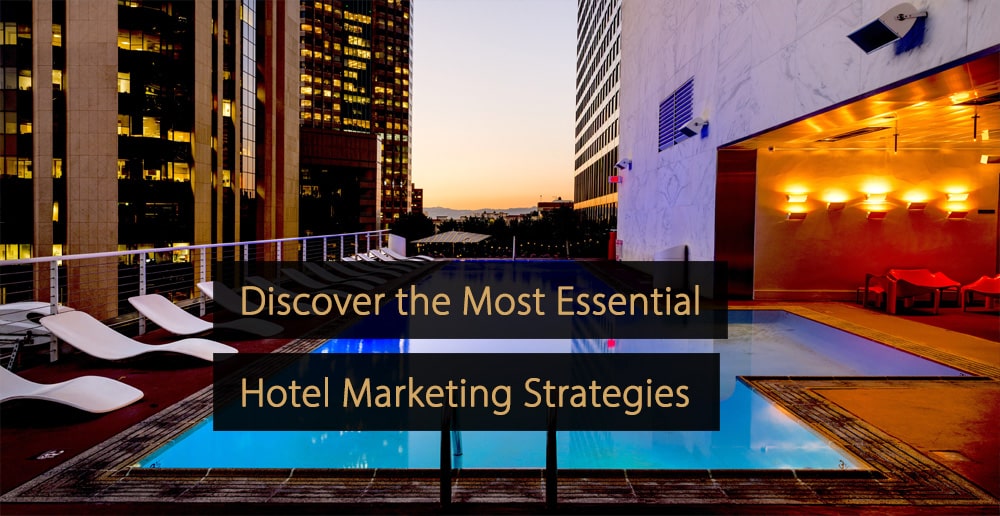
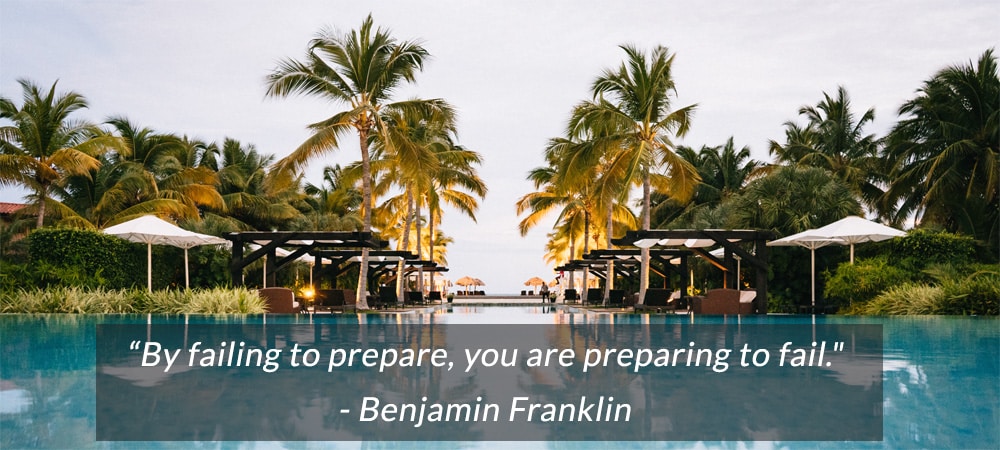
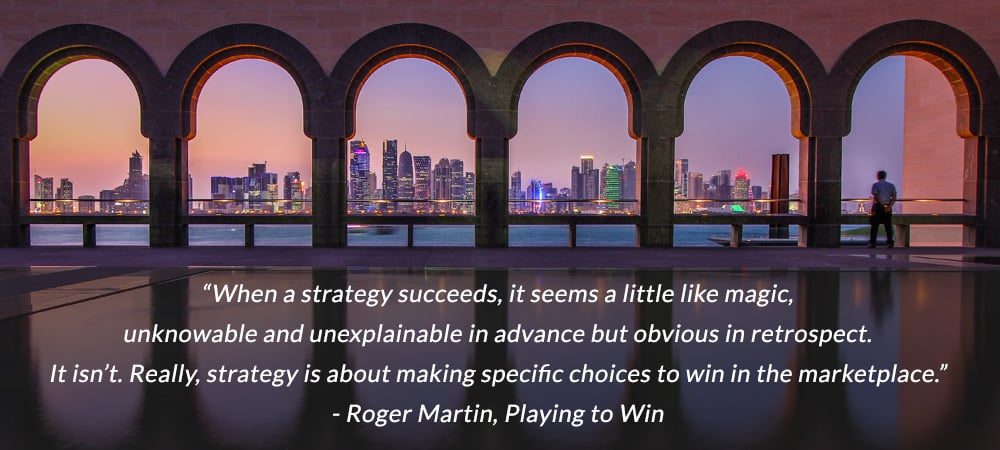
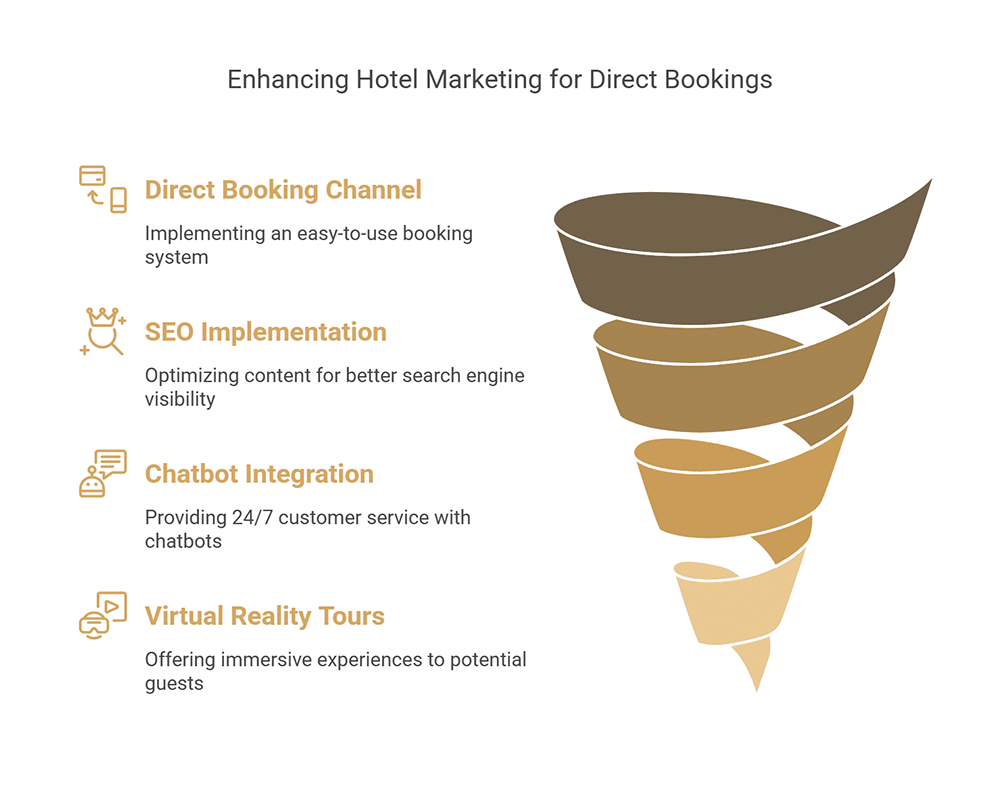

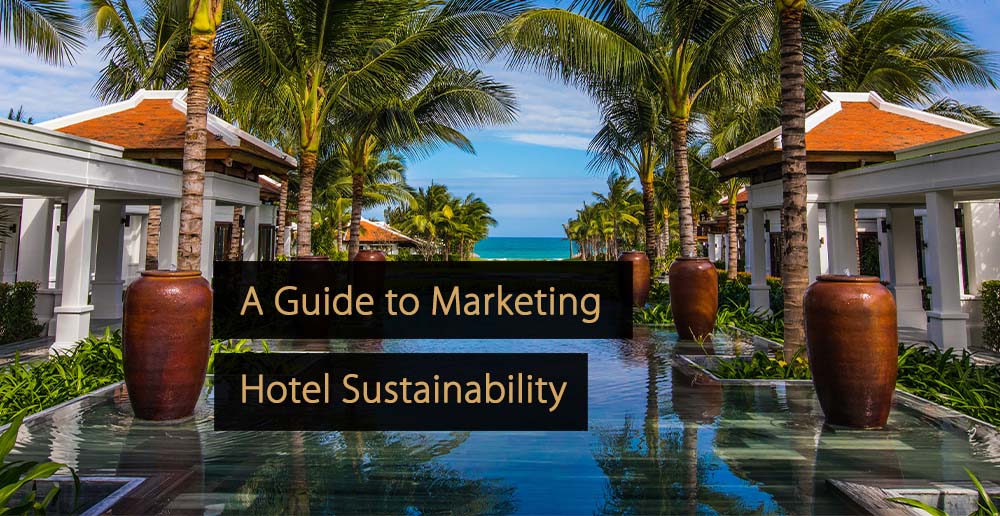

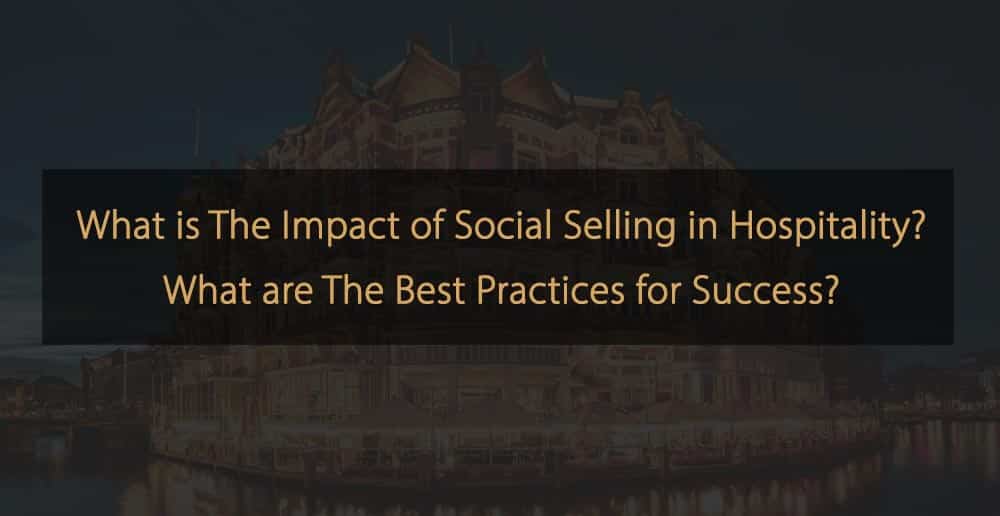
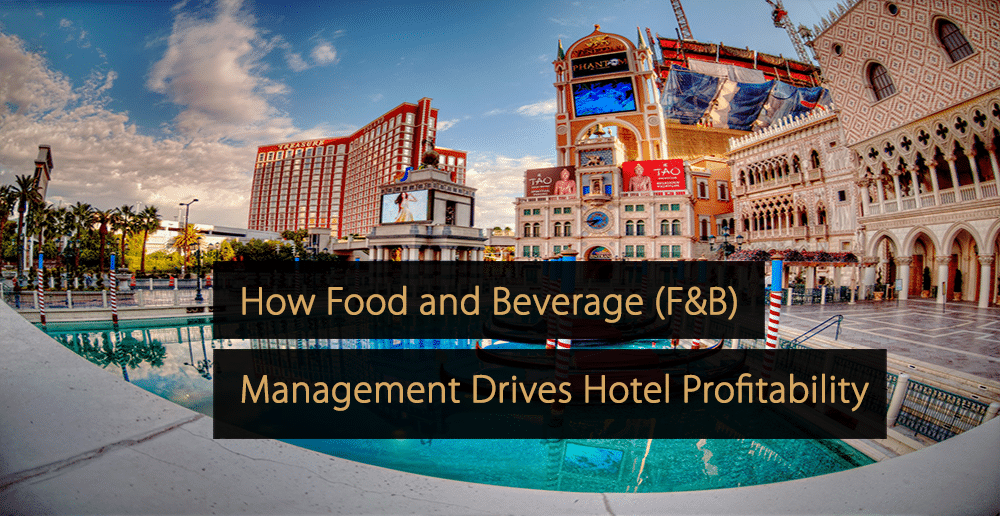
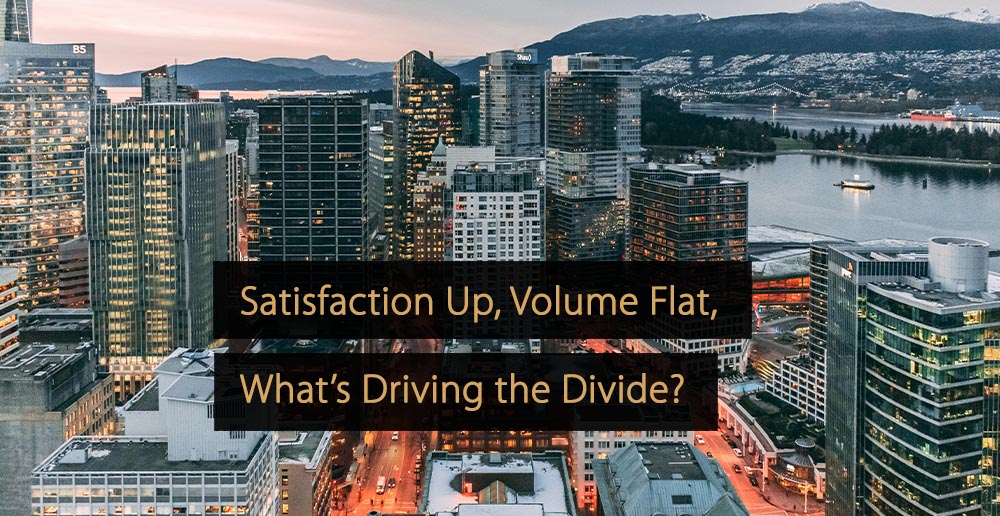
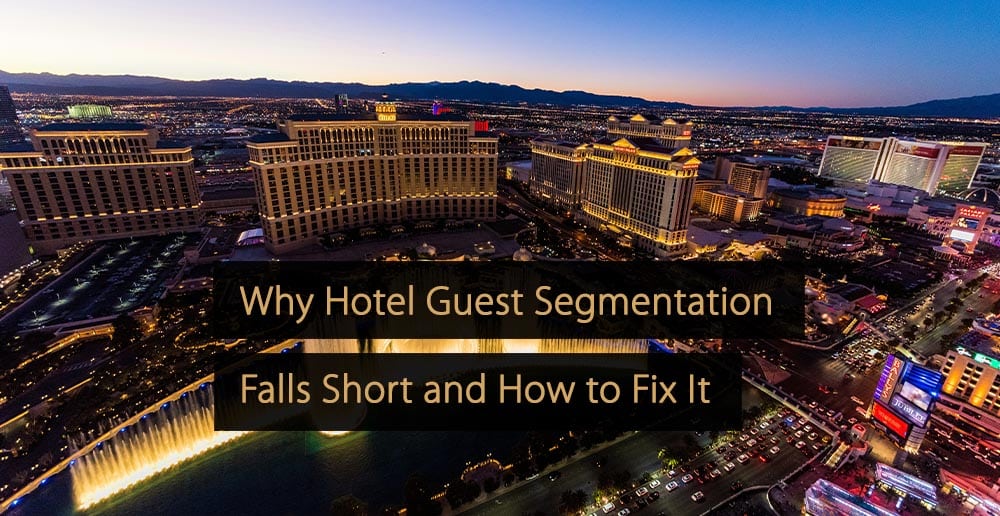
Agradezco la información de esta página web. Adquirí muchos conocimientos sobre cómo comercializar un hotel.
Si es propietario de una pequeña empresa, es fácil sentir que se está quedando atrás de la competencia y necesita algunos de los mejores consejos de marketing digital.
Es una publicación muy informativa. ¡gracias por compartir!
¡Buena publicación! Estas estrategias de marketing hotelero son muy útiles.
Muchas gracias por tus consejos. He mejorado mis habilidades de marketing con los conocimientos proporcionados.
¡Buen blog! Me gusta mucho el artículo y las estrategias de marketing hotelero. Los consejos son muy útiles para mí. Gracias por compartir.
Leí tu publicación sobre marketing hotelero. Es muy bueno.
Tienes un gran conocimiento sobre este tema. Gracias por compartir estas estrategias con todos nosotros.
Buen articulo. Si las estrategias anteriores no cambian su negocio de hostelería, entonces nunca tendrá que cambiar.
Gracias por compartir estas estrategias de marketing hotelero. Son muy útiles.
Muchas gracias por toda la información sobre marketing hotelero. ¡Me ayudó a hacer mi tarea!
Contenido asombroso, así como el quinto consejo sobre el análisis de datos. Una vez más, contenido realmente bueno, felicitaciones a quienes crearon este artículo.